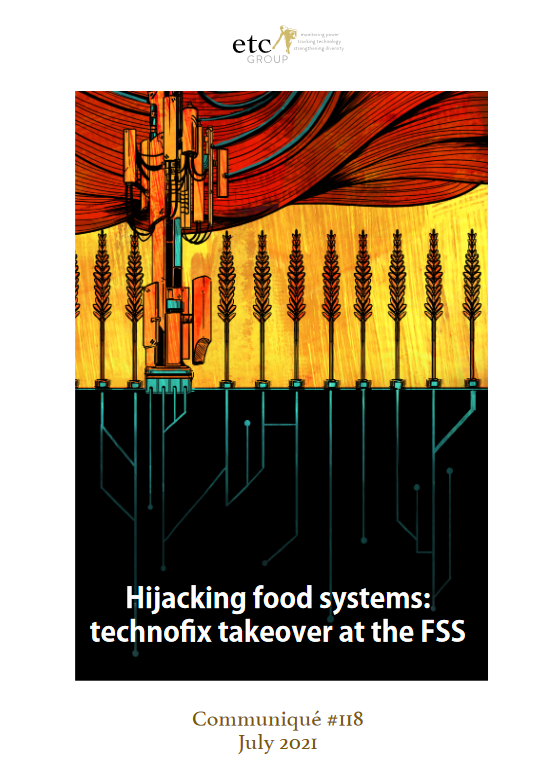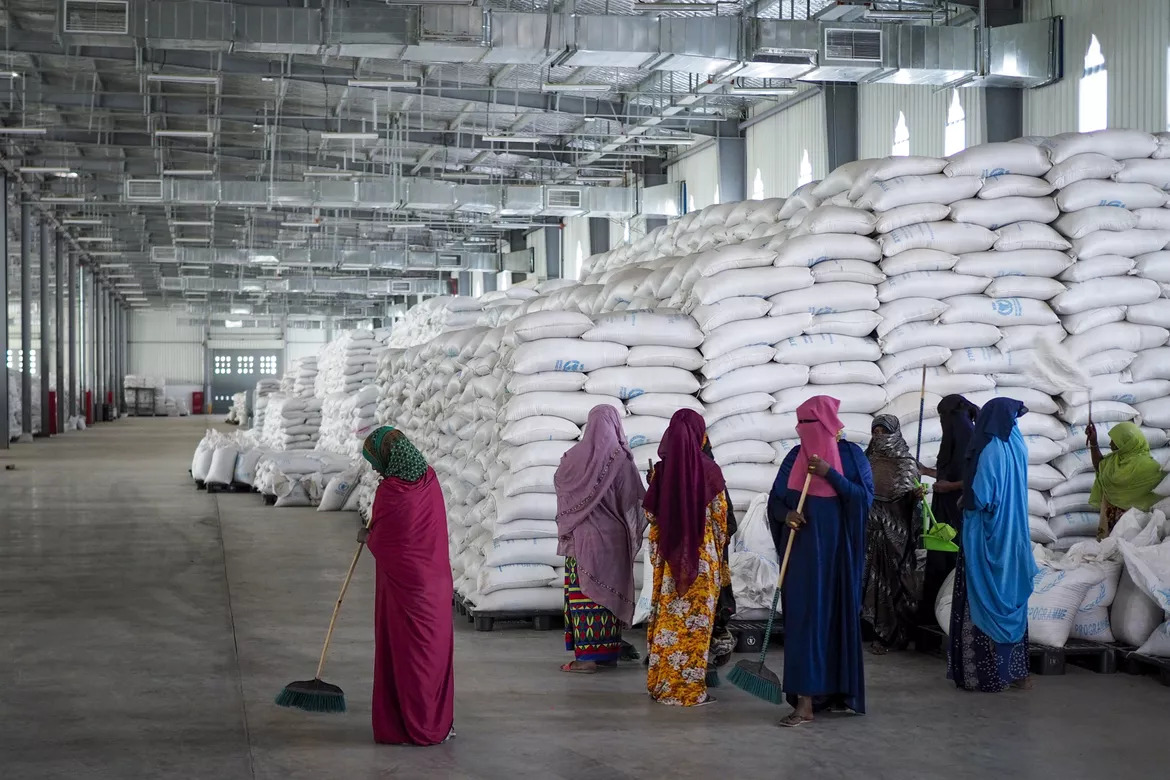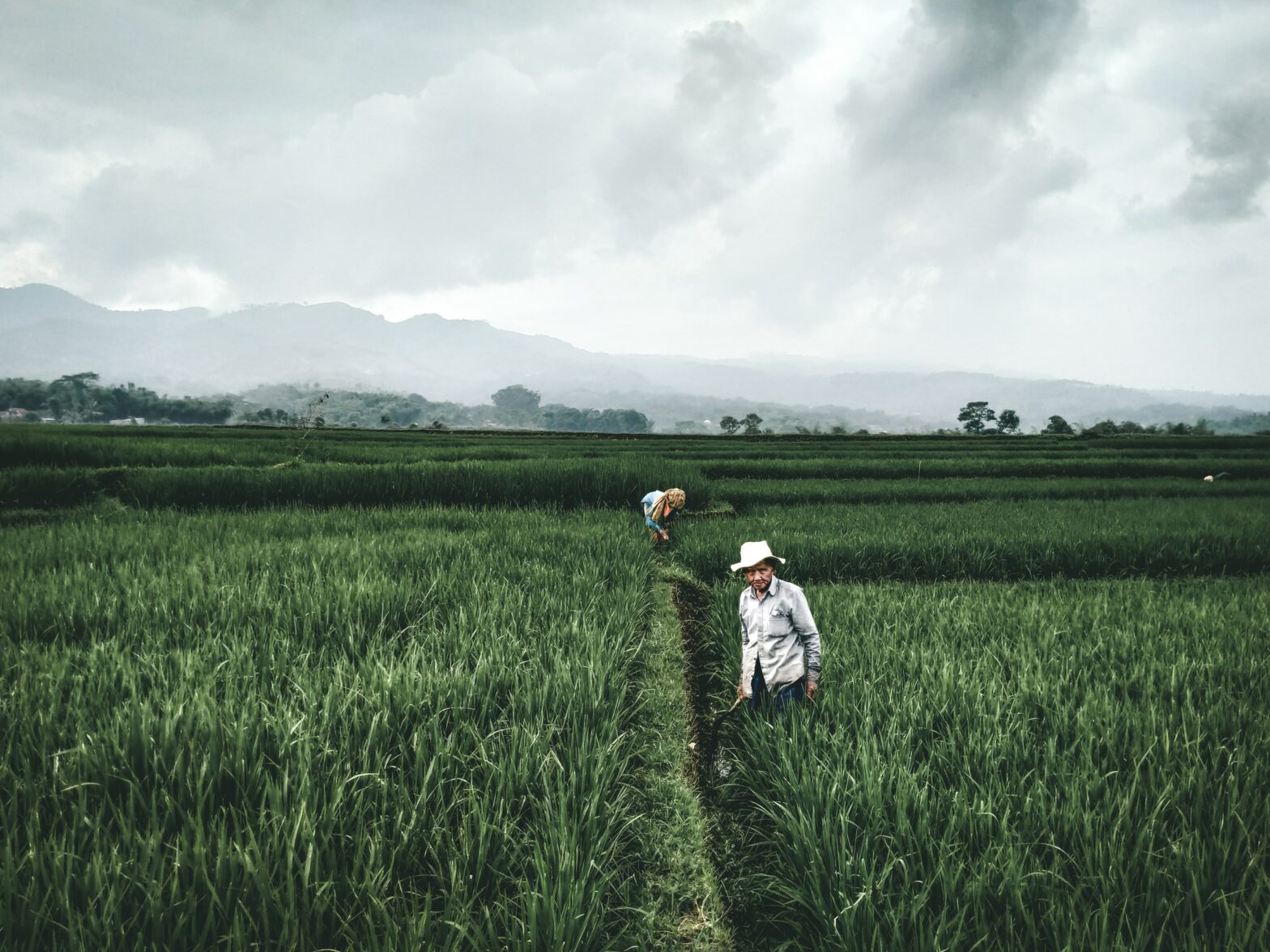Partager Twitter Facebook Email Copy URL
The technofix takeover at the UN Food Systems Summit – en anglais !

The Action Group on Erosion, Technology and Concentration (ETC Group) operates at the global level and cooperates with the Rosa Luxemburg Foundation’s Manila Office. The group focuses on socioeconomic and ecological issues surrounding new technologies. It investigates ecological erosion but also of cultures and human rights, researches new technologies, and monitors global governance issues including corporate concentration and trade in technologies.
The publication was first published on rosalux.de.
Following an in-depth monitoring and analysis of the developments around the United Nations Food Systems Summit and other global institutions in food systems governance, the ETC Group with the support of Rosa Luxemburg Foundation’s Manila Office breaks down why this is the wrong kind of food systems summit in its latest communiqué.
Hijacking Food Systems looks at how the UN Food Systems Summit (UNFSS) planned for the fall of 2021 is not about changing food systems, but about spinning a story that props up and expands the industrial food chain at the expense of other food systems. The UNFSS’s proponents argue that the “food system” is broken, that population growth and climate change mean that we will not be able to feed everyone, and that only new technological developments can save us. But this is a story that has been carefully constructed by those who stand to profit from it—it is intended to enable the expansion of the corporate-controlled industrial form of food production.
- The underlying purpose of this summit is to establish parameters, i.e. the path that governments will choose to prioritize, promote, and finance in the future—and what and who they will reject.
- The narrative of a broken food system is only relevant to the 30 percent of the global population fed by the industrial food chain and obscures the sustainable peasant farmers and smallholders that feed the remaining 70 percent.
A genuine food summit would challenge the industrial food system’s impact on food, health, climate, and biodiversity and have the interests and meaningful participation of the peasants, smallholders, pastoralists, fishers, Indigenous peoples, and urban gardeners that feed the overwhelming majority of the planet’s population at its very core. Its outcomes should be integrated into and help shape the deliberations of the UN’s Committee on Food Security, which is already tasked with addressing the concerns the FSS purports to resolve, and has well-established mechanisms concerning the participation of rights-holders and their rights to self-organize.



